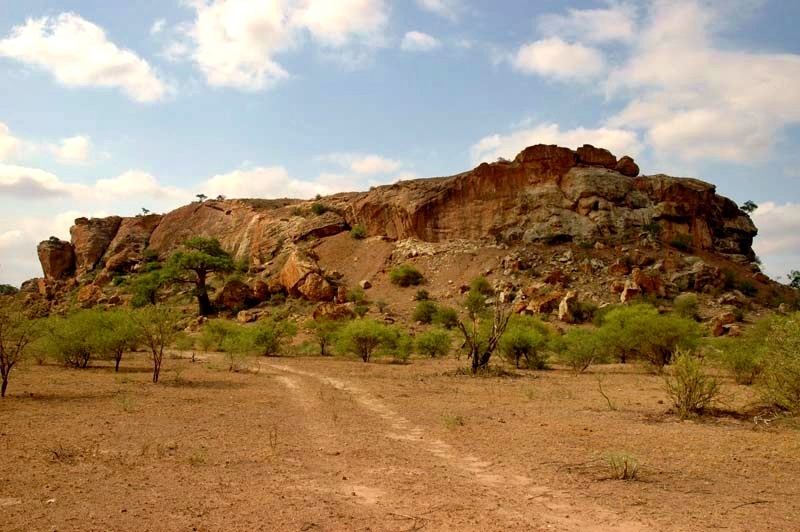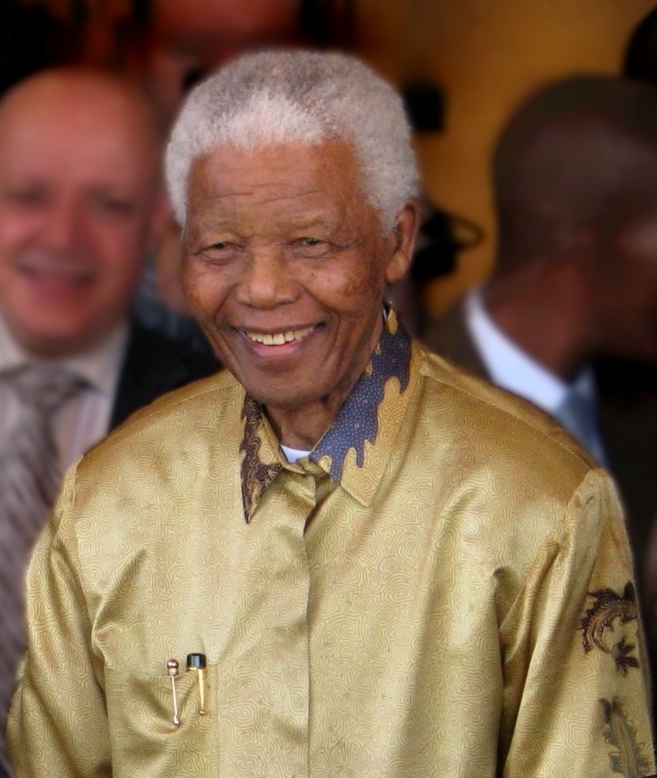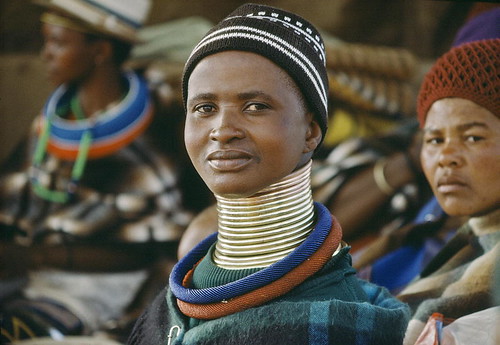Difference between revisions of "Adopting from South Africa"
(→Who Can Be Adopted) |
m (→SOURCE) |
||
| (7 intermediate revisions by 2 users not shown) | |||
| Line 1: | Line 1: | ||
| − | {{#eimage:https://www.cia.gov/library/publications/the-world-factbook/graphics/flags/large/sf-lgflag.gif|410x579px|thumb|'''The official flag | + | {{#eimage:https://www.cia.gov/library/publications/the-world-factbook/graphics/flags/large/sf-lgflag.gif|410x579px|thumb|'''The official flag.'''<BR/>Source: cia.gov.}} |
| − | {{#eimage:https://www.cia.gov/library/publications/the-world-factbook/graphics/maps/sf-map.gif|410x579px|thumb|'''Map | + | {{#eimage:https://www.cia.gov/library/publications/the-world-factbook/graphics/maps/sf-map.gif|410x579px|thumb|'''Map'''<BR/>Source: cia.gov.}} |
| − | {{#eimage:https://www.cia.gov/library/publications/the-world-factbook/graphics/locator/afr/sf_large_locator.gif|410x579px|thumb|'''Map | + | {{#eimage:https://www.cia.gov/library/publications/the-world-factbook/graphics/locator/afr/sf_large_locator.gif|410x579px|thumb|'''Map'''<BR/>Source: cia.gov.}} |
| − | {{#eimage:http://upload.wikimedia.org/wikipedia/commons/d/de/MapungubweHill.jpg|410x579px|thumb|'''Mapungubwe Hill | + | {{#eimage:http://upload.wikimedia.org/wikipedia/commons/d/de/MapungubweHill.jpg|410x579px|thumb|'''Mapungubwe Hill'''<BR/>Source: Wikipedia.org.}} |
{{#eimage:http://upload.wikimedia.org/wikipedia/commons/1/14/Nelson_Mandela-2008_%28edit%29.jpg|410x579px|thumb|'''[[Nelson Mandela]].'''<BR/>Source: Wikipedia.org.}} | {{#eimage:http://upload.wikimedia.org/wikipedia/commons/1/14/Nelson_Mandela-2008_%28edit%29.jpg|410x579px|thumb|'''[[Nelson Mandela]].'''<BR/>Source: Wikipedia.org.}} | ||
| Line 13: | Line 13: | ||
{{#eimage:http://upload.wikimedia.org/wikipedia/commons/thumb/4/40/Soweto_township.jpg/800px-Soweto_township.jpg|410x579px|thumb|'''Slums of Soweto.'''<BR/>Source: Wikipedia.org.}} | {{#eimage:http://upload.wikimedia.org/wikipedia/commons/thumb/4/40/Soweto_township.jpg/800px-Soweto_township.jpg|410x579px|thumb|'''Slums of Soweto.'''<BR/>Source: Wikipedia.org.}} | ||
| − | {{#eimage:https://farm4.staticflickr.com/3255/3546874306_aef3183c60.jpg|410x579px|thumb|'''A woman from the Ndebele tribe | + | {{#eimage:https://farm4.staticflickr.com/3255/3546874306_aef3183c60.jpg|410x579px|thumb|'''A woman from the Ndebele tribe'''<BR/>Source: flickr.com.}} |
{{#eimage:http://upload.wikimedia.org/wikipedia/commons/thumb/9/90/CTfromTableMountain.jpg/800px-CTfromTableMountain.jpg|410x579px|thumb|'''View of Cape Town's "city bowl" from Table Mountain.'''<BR/>Source: Wikipedia.org.}} | {{#eimage:http://upload.wikimedia.org/wikipedia/commons/thumb/9/90/CTfromTableMountain.jpg/800px-CTfromTableMountain.jpg|410x579px|thumb|'''View of Cape Town's "city bowl" from Table Mountain.'''<BR/>Source: Wikipedia.org.}} | ||
| − | {{#eimage:http://upload.wikimedia.org/wikipedia/commons/thumb/6/6d/Cape_Town_Bo-Kaap_city_street.jpg/800px-Cape_Town_Bo-Kaap_city_street.jpg|410x579px|thumb|''' | + | {{#eimage:http://upload.wikimedia.org/wikipedia/commons/thumb/6/6d/Cape_Town_Bo-Kaap_city_street.jpg/800px-Cape_Town_Bo-Kaap_city_street.jpg|410x579px|thumb|'''Cape Town'''<BR/>Source: Wikipedia.org.}} |
| − | {{#eimage:http://upload.wikimedia.org/wikipedia/commons/thumb/d/da/Sangomas-greeting.jpg/800px-Sangomas-greeting.jpg|410x579px|thumb|'''Sangomas greeting each other | + | {{#eimage:http://upload.wikimedia.org/wikipedia/commons/thumb/d/da/Sangomas-greeting.jpg/800px-Sangomas-greeting.jpg|410x579px|thumb|'''Sangomas greeting each other'''<BR/>Source: Wikipedia.org.}} |
| − | + | '''Notice: As of July 14, 2014, all individuals and agencies facilitating [[international]] adoptions must be in compliance with the Intercountry [[Universal Accreditation Act]].''' | |
| − | + | The information contained on this website is for educational purposes only and is not intended to be a substitute for professional legal advice. Always seek the advice of a licensed and qualified professional. While the content of this website is frequently updated, information changes rapidly and therefore, some information may be out of date, and/or contain inaccuracies, omissions or typographical errors. | |
| − | |||
| + | =About South Africa= | ||
| − | + | Dutch traders landed at the southern tip of modern day [[South Africa]] in 1652 and established a stopover point on the spice route between the [[Netherlands]] and the Far East, founding the city of Cape Town. After the British seized the Cape of Good Hope area in 1806, many of the Dutch settlers (the Boers) trekked north to found their own republics. The discovery of diamonds (1867) and gold (1886) spurred wealth and immigration and intensified the subjugation of the native inhabitants. To learn more please read [[About South Africa]]. | |
| − | + | =South Africa Adoption Alert= | |
| − | + | ||
| − | + | ||
| − | + | ||
| + | There have been multiple [[adoption]] alerts for [[South Africa]] over the years. To stay up to date please read the [[South Africa Adoption Alert]] page. | ||
=Hague Convention Information= | =Hague Convention Information= | ||
| − | Africa is party to the Hague Convention on Protection of Children and Co-operation in Respect of Intercountry Adoption (Hague Adoption Convention). Therefore all intercountry adoptions between South Africa and the United States must meet the requirements of the Convention and U.S. law implementing the Convention. | + | [[South Africa]] is party to the Hague Convention on Protection of Children and Co-operation in Respect of Intercountry [[Adoption]] (Hague [[Adoption]] Convention). Therefore all intercountry adoptions between [[South Africa]] and the United States must meet the requirements of the Convention and U.S. law implementing the Convention. To learn more please read about [[South Africa and the Hague Convention]]. |
| − | |||
| − | |||
| − | |||
| − | |||
| − | |||
| − | |||
| − | |||
| − | |||
| − | |||
| − | |||
| − | |||
| − | |||
| − | |||
| − | |||
| − | |||
| − | |||
| − | |||
=Who Can Adopt= | =Who Can Adopt= | ||
| − | Adoption between the United States and South Africa is governed by the Hague Adoption Convention. Therefore to [[adopt]] from South Africa, you must first be found eligible to [[adopt]] by the U.S. Government. The U.S. Government agency responsible for making this determination is the Department of Homeland Security, U.S. Citizenship and Immigration Services (USCIS). | + | [[Adoption]] between the United States and [[South Africa]] is governed by the Hague [[Adoption]] Convention. Therefore to [[adopt]] from [[South Africa]], you must first be found eligible to [[adopt]] by the U.S. Government. The U.S. Government agency responsible for making this determination is the Department of Homeland Security, U.S. Citizenship and Immigration Services (USCIS). To learn more please read about [[Who Can Adopt from South Africa]]. |
| − | + | =Who Can Be Adopted= | |
| − | + | Because [[South Africa]] is party to the Hague [[Adoption]] Convention, children from [[South Africa]] must meet the requirements of the Convention in order to be eligible for [[adoption]]. For example, the Convention requires that [[South Africa]] attempt to place a child with a family in-country before determining that a child is eligible for intercountry [[adoption]]. In addition to [[South Africa]]’s requirements, a child must meet the definition of a Convention adoptee for you to bring him or her back to the United States. To learn more please read about [[Who Can Be Adopted from South Africa]]. | |
| − | |||
| − | = | + | =How to Adopt= |
| − | + | ==Adoption Authority== | |
| − | + | '''[[South Africa]]'s [[Adoption]] Authority''' | |
| − | + | Department of Social Development | |
| − | |||
| − | + | ==The Process== | |
| − | + | Because [[South Africa]] is party to the Hague [[Adoption]] Convention, adopting from [[South Africa]] must follow a specific process designed to meet the Convention's requirements. A brief summary of the Convention [[adoption]] process is provided below. You must complete these steps in the following order so that your [[adoption]] meets all necessary legal requirements. [[South Africa]] implemented the Children's Act on April 1, 2010, which formalizes laws and procedures regarding intercountry [[adoption]] under the Hague Convention. | |
| − | + | '''NOTE:''' If you completed a full and final [[adoption]] or filed your [[I-600A|I-600a]] or [[I-600]] with USCIS before April 1, 2008, the Hague [[Adoption]] Convention may not apply to your [[adoption]]. Your [[adoption]] could continue to be processed in accordance with the immigration regulations for non-Convention adoptions. Learn more . | |
| − | |||
| − | + | # Choose an Accredited [[Adoption Service Provider]] | |
| + | # Apply to be Found Eligible to [[Adopt]] | ||
| + | # Be Matched with a Child | ||
| + | # Apply for the Child to be Found Eligible for Immigration to the United States | ||
| + | # [[Adopt]] the Child in [[South Africa]] | ||
| + | # Bring your Child Home | ||
| + | To learn more about this process please read [[How to Adopt from South Africa]]. | ||
| − | |||
| + | =Traveling Abroad= | ||
| − | + | '''Applying for Your U.S. Passport''' | |
| + | A valid U.S. passport is required to enter and leave [[South Africa]]. Only the U.S. Department of State has the authority to grant, issue, or verify U.S. passports. Getting or renewing a passport is easy. To learn more please read about [[Traveling Abroad in South Africa]]. | ||
| − | |||
| + | =After Adoption= | ||
| − | '''[[ | + | '''What resources are available to assist families after the [[adoption]]?''' |
| − | + | Many [[Adoptive Parents|adoptive parents]] find it important to find support after the [[adoption]]. Take advantage of all the resources available to your family -- whether it's another adoptive family, a support group, an advocacy organization, or your religious or community services. | |
| − | |||
| − | + | Here are some good places to start your support group search: | |
| − | |||
| − | + | [https://www.childwelfare.gov/pubs/f_postadoption.cfm Child Welfare Information Gateway] | |
| − | + | [http://www.nacac.org/ North American Council on Adoptable Children] | |
| + | [http://www.adoptionservices.org/adoption_support_groups_family/index.htm Adoption Services Support Group for Adopting Persons] | ||
| − | |||
| − | = | + | =Contact Information= |
| − | + | '''U.S. Consulate in [[South Africa]]''' | |
| − | + | U.S. Consulate General | |
| + | 1 Sandton Drive | ||
| + | Sandhurst 2196 | ||
| + | Johannesburg | ||
| + | Tel: 27-11-290-3000 | ||
| + | Fax: 27-11-884-0396 | ||
| − | |||
| + | The Consulate in Johannesburg handles all consular matters, including immigrant visas, for Pretoria. The United States also has Consulates General in Cape Town and Durban; however these offices do not process immigrant visas. | ||
| − | |||
| − | + | '''[[South Africa]]’s [[Adoption]] Authority''' | |
| + | Department of Social Development | ||
| + | Registrar of Adoptions | ||
| + | Private Bag X901 | ||
| + | Pretoria 0001, [[South Africa]] | ||
| + | Tel: 27-12-312-7592 | ||
| + | Fax: 27-12-312-7837 | ||
| − | |||
| − | + | '''Commissioner of Child Welfare''' | |
| + | Private Bag X61 | ||
| + | Pretoria 0001, [[South Africa]] | ||
| + | Tel: 27-12-328-4026 | ||
| + | Fax: 27-12-321-8124 | ||
| − | |||
| − | + | '''Embassy of [[South Africa]]''' | |
| − | + | Embassy of the Republic of [[South Africa]] | |
| + | 3051 [[Massachusetts]] Avenue, NW | ||
| + | [[Washington]] , DC 20008 | ||
| + | Tel: 202-232-4400 | ||
| − | |||
| − | + | [[South Africa]] also has Consulates in Chicago, Los Angeles and [[New York]]. | |
| − | + | '''Office of Children’s Issues''' | |
| − | + | U.S. Department of State | |
| − | + | CA/OCS/CI | |
| − | + | SA-17, 9th Floor | |
| − | [ | + | [[Washington]], DC 20522-1709 |
| − | + | Tel: 1-888-407-4747 | |
| − | + | E-mail: AskCI@state.gov | |
| Line 162: | Line 159: | ||
==SOURCE== | ==SOURCE== | ||
| − | '''Intercountry [[Adoption]], Bureau of Consular Affairs. U.S. Department of State Country Information''' | + | '''Intercountry [[Adoption]], Bureau of Consular Affairs. U.S. Department of State Country Information''' adoption.state.gov/country_information/country_specific_info.php?country-select=south_africa |
| − | + | ||
[[Category: International Adoption]] | [[Category: International Adoption]] | ||
Latest revision as of 02:37, 21 February 2018
Notice: As of July 14, 2014, all individuals and agencies facilitating international adoptions must be in compliance with the Intercountry Universal Accreditation Act.
The information contained on this website is for educational purposes only and is not intended to be a substitute for professional legal advice. Always seek the advice of a licensed and qualified professional. While the content of this website is frequently updated, information changes rapidly and therefore, some information may be out of date, and/or contain inaccuracies, omissions or typographical errors.
Contents
About South Africa
Dutch traders landed at the southern tip of modern day South Africa in 1652 and established a stopover point on the spice route between the Netherlands and the Far East, founding the city of Cape Town. After the British seized the Cape of Good Hope area in 1806, many of the Dutch settlers (the Boers) trekked north to found their own republics. The discovery of diamonds (1867) and gold (1886) spurred wealth and immigration and intensified the subjugation of the native inhabitants. To learn more please read About South Africa.
South Africa Adoption Alert
There have been multiple adoption alerts for South Africa over the years. To stay up to date please read the South Africa Adoption Alert page.
Hague Convention Information
South Africa is party to the Hague Convention on Protection of Children and Co-operation in Respect of Intercountry Adoption (Hague Adoption Convention). Therefore all intercountry adoptions between South Africa and the United States must meet the requirements of the Convention and U.S. law implementing the Convention. To learn more please read about South Africa and the Hague Convention.
Who Can Adopt
Adoption between the United States and South Africa is governed by the Hague Adoption Convention. Therefore to adopt from South Africa, you must first be found eligible to adopt by the U.S. Government. The U.S. Government agency responsible for making this determination is the Department of Homeland Security, U.S. Citizenship and Immigration Services (USCIS). To learn more please read about Who Can Adopt from South Africa.
Who Can Be Adopted
Because South Africa is party to the Hague Adoption Convention, children from South Africa must meet the requirements of the Convention in order to be eligible for adoption. For example, the Convention requires that South Africa attempt to place a child with a family in-country before determining that a child is eligible for intercountry adoption. In addition to South Africa’s requirements, a child must meet the definition of a Convention adoptee for you to bring him or her back to the United States. To learn more please read about Who Can Be Adopted from South Africa.
How to Adopt
Adoption Authority
South Africa's Adoption Authority
Department of Social Development
The Process
Because South Africa is party to the Hague Adoption Convention, adopting from South Africa must follow a specific process designed to meet the Convention's requirements. A brief summary of the Convention adoption process is provided below. You must complete these steps in the following order so that your adoption meets all necessary legal requirements. South Africa implemented the Children's Act on April 1, 2010, which formalizes laws and procedures regarding intercountry adoption under the Hague Convention.
NOTE: If you completed a full and final adoption or filed your I-600a or I-600 with USCIS before April 1, 2008, the Hague Adoption Convention may not apply to your adoption. Your adoption could continue to be processed in accordance with the immigration regulations for non-Convention adoptions. Learn more .
- Choose an Accredited Adoption Service Provider
- Apply to be Found Eligible to Adopt
- Be Matched with a Child
- Apply for the Child to be Found Eligible for Immigration to the United States
- Adopt the Child in South Africa
- Bring your Child Home
To learn more about this process please read How to Adopt from South Africa.
Traveling Abroad
Applying for Your U.S. Passport
A valid U.S. passport is required to enter and leave South Africa. Only the U.S. Department of State has the authority to grant, issue, or verify U.S. passports. Getting or renewing a passport is easy. To learn more please read about Traveling Abroad in South Africa.
After Adoption
What resources are available to assist families after the adoption?
Many adoptive parents find it important to find support after the adoption. Take advantage of all the resources available to your family -- whether it's another adoptive family, a support group, an advocacy organization, or your religious or community services.
Here are some good places to start your support group search:
Child Welfare Information Gateway
North American Council on Adoptable Children
Adoption Services Support Group for Adopting Persons
Contact Information
U.S. Consulate in South Africa
U.S. Consulate General 1 Sandton Drive Sandhurst 2196 Johannesburg Tel: 27-11-290-3000 Fax: 27-11-884-0396
The Consulate in Johannesburg handles all consular matters, including immigrant visas, for Pretoria. The United States also has Consulates General in Cape Town and Durban; however these offices do not process immigrant visas.
South Africa’s Adoption Authority
Department of Social Development Registrar of Adoptions Private Bag X901 Pretoria 0001, South Africa Tel: 27-12-312-7592 Fax: 27-12-312-7837
Commissioner of Child Welfare
Private Bag X61 Pretoria 0001, South Africa Tel: 27-12-328-4026 Fax: 27-12-321-8124
Embassy of South Africa
Embassy of the Republic of South Africa 3051 Massachusetts Avenue, NW Washington , DC 20008 Tel: 202-232-4400
South Africa also has Consulates in Chicago, Los Angeles and New York.
Office of Children’s Issues
U.S. Department of State CA/OCS/CI SA-17, 9th Floor Washington, DC 20522-1709 Tel: 1-888-407-4747 E-mail: AskCI@state.gov
SOURCE
Intercountry Adoption, Bureau of Consular Affairs. U.S. Department of State Country Information adoption.state.gov/country_information/country_specific_info.php?country-select=south_africa










